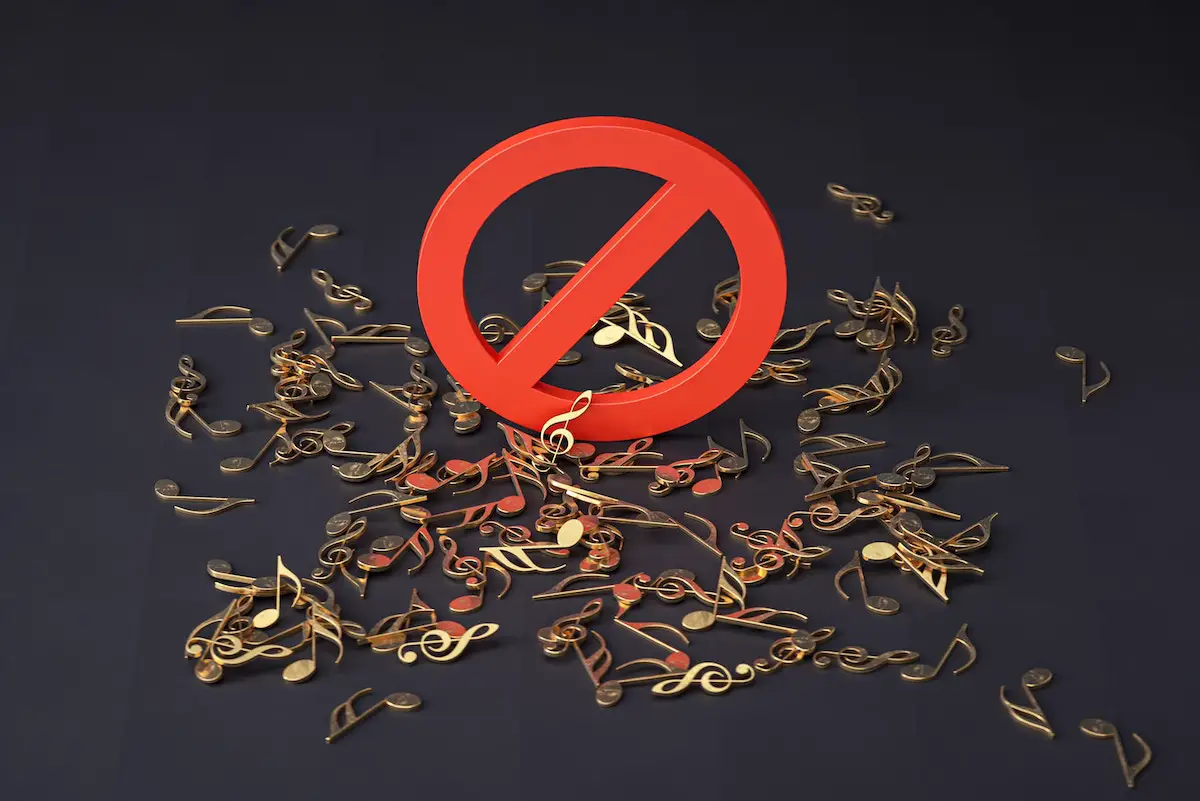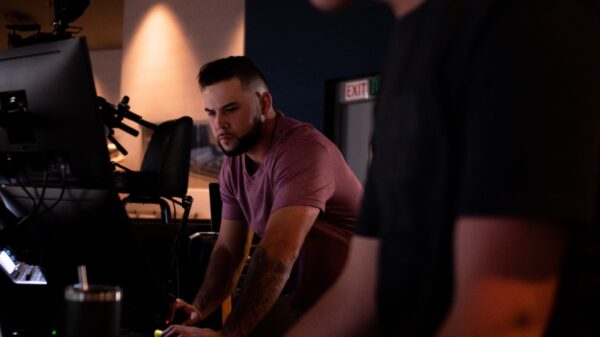Can a Church Be Sued for Copyright Infringement?
If you are a higher up or take on a leadership role at your church, you have probably wondered more than once if your church could fall subject to a copyright infringement lawsuit. Unfortunately, churches are not exempt from copyright infringement, but there are ways for you to avoid it! The best way to avoid it is to first be able to understand what copyright infringement is. Copyright infringement is a legal concern that affects various sectors, including religious institutions such as churches. While churches primarily focus on matters of faith and worship, their activities may involve the use of copyrighted materials. In this article, we will explore different ways that churches can be sued for copyright infringement. We will delve into the definition of copyright infringement, provide examples of reasons why churches may face legal action, and offer practical strategies to avoid copyright infringement.

Understanding Copyright Infringement
Copyright infringement occurs when someone uses a copyrighted work without obtaining permission or without falling within the boundaries of fair use. Copyright law grants exclusive rights to creators of original works, including literary, artistic, musical, and audiovisual works. These rights enable creators to control the reproduction, distribution, display, and performance of their works. It is essential for churches to comprehend the implications of copyright infringement and take proactive steps to ensure compliance. If you are ever concerned that a certain piece of writing or music might make your church subject to copyright infringement, it is always safer to refrain from using it in your next service until you can confirm that it is legally safe for the church to use it!
Reasons Churches May Face Lawsuits
Knowing about the different reasons churches have faced copyright infringement lawsuits before is a helpful way to avoid these legal cases in the future. Listed below are a few common examples of how churches fall victim to these cases.
Unauthorized Use of Music
Churches frequently incorporate music into their worship services. However, if they perform copyrighted songs without obtaining proper licenses or permissions, they risk infringing on the rights of songwriters, composers, and music publishers. This includes performing songs without a performance license, streaming copyrighted music without the necessary digital performance licenses, or using recordings without permission.
Unauthorized Reproduction and Distribution
Some churches may copy and distribute copyrighted materials, such as religious books or study guides, without permission. This includes printing and distributing copyrighted material, making it available online, or sharing it with the congregation. Unauthorized reproduction or distribution can lead to claims of copyright infringement from authors, publishers, or content creators.
Multimedia Presentations
Churches often use multimedia presentations during their services, incorporating images, videos, or audio clips. However, if these elements are used without proper licenses or permissions, the church could be liable for copyright infringement. This includes using copyrighted images or videos without permission or displaying copyrighted lyrics without a synchronization license.
Public Performances of Copyrighted Works
Churches may host events or performances that involve copyrighted works, such as plays, musicals, or movies. Without obtaining the necessary performance licenses, churches could face legal repercussions for infringing on the rights of copyright holders.

Reasons Churches May Be Exempt from Lawsuits
While your church may fall victim to copyright infringement laws, these are a few ways you may be exempt from these cases as well. This is equally as important to know as it can help keep your church out of trouble as well as help you understand how to enrich your next service with legally appropriate materials.
Religious Rituals and Ceremonies
Copyright law often recognizes the importance of religious rituals and ceremonies and provides exemptions for certain religious uses of copyrighted works. This can include the use of sacred texts, prayers, or hymns during religious services or ceremonies. However, the scope of these exemptions may vary depending on the jurisdiction and the specific circumstances.
Non-Profit and Educational Purposes
Churches are typically recognized as non-profit organizations engaged in religious and educational activities. In some jurisdictions, non-profit entities may benefit from exceptions or limitations on copyright liability when their use of copyrighted materials is for non-commercial and educational purposes. However, the specific requirements and limitations of these exemptions should be understood and adhered to in order to qualify for protection.
Public Domain Works
Copyright protection has a limited duration, and once a work enters the public domain, it can be freely used by anyone, including churches. Public domain works are those whose copyright has expired, been forfeited, or dedicated to the public by the copyright owner. Churches can make use of public domain works, such as classic religious texts or hymns whose copyrights have lapsed, without the need for permission or licenses.
Parody and Satire
Copyright law often allows for the use of copyrighted material in the context of parody or satire. If a church uses copyrighted material in a transformative manner to comment on or critique a particular aspect of religious or societal issues, it may be protected under the fair use doctrine or exemptions for parody. However, it’s important to note that the determination of whether a particular use qualifies as a parody or satire can be subjective and may require legal assessment on a case-by-case basis.
Preventive Measures for Churches
If you are looking to guarantee that your church will not face any copyright infringement lawsuit cases, there are a few measures you can take. With the correct process and following these rules, you and your church will continue to operate within the legal bounds of copyright law, allowing you to have an enriching and safe service!
Obtain Licenses and Permissions
To obtain the proper licenses for distributing copyrighted materials, including books, music, or other works, there are several avenues you can explore:
Performing rights organizations (PROs): For churches that use music in their services, PROs like the Christian Copyright Licensing International (CCLI) or the American Society of Composers, Authors, and Publishers (ASCAP) offer licenses specifically for churches. These licenses allow for the performance and sometimes the reproduction of copyrighted music within the church premises.
Publishers and copyright holders: If you intend to reproduce or distribute copyrighted materials such as religious books, study guides, or other printed materials, it is advisable to seek permission directly from the publishers or copyright holders. Many publishers have specific departments or permissions processes to handle requests for licensing and reproduction rights.
Online music licensing platforms: There are online platforms that offer licenses for streaming or downloading music legally. Examples include platforms like OneLicense, which provides licenses for church music, or platforms like Soundstripe and Artlist that offer licenses for various types of music for multimedia use.
Digital licensing services: If you plan to distribute copyrighted materials in digital formats, such as e-books or online publications, there are digital licensing services available. Companies like Copyright Clearance Center (CCC) provide licenses for digital content distribution, helping you secure the necessary permissions and pay royalties to copyright holders.
Visual content licensing platforms: If your church uses images, videos, or other visual materials, it is crucial to obtain proper licenses for their use. Platforms like Shutterstock, Getty Images, or Adobe Stock offer licenses for various types of visual content that can be used in multimedia presentations, websites, or other church materials.

Educate Staff and Volunteers
Church leadership should provide comprehensive training and education on copyright laws and the proper use of copyrighted materials. This includes raising awareness about the importance of obtaining licenses, seeking permissions, and understanding fair use guidelines. By ensuring that staff and volunteers are knowledgeable about copyright regulations, churches can minimize the risk of unintentional infringement.
Implement a Copyright Policy
Churches should establish a clear and comprehensive copyright policy that outlines the guidelines and restrictions for using copyrighted materials. This policy should be communicated to all staff, volunteers, and congregation members to create a culture of respect for intellectual property. It should address the proper use of copyrighted materials, the importance of obtaining licenses, and the consequences of non-compliance. Regularly reviewing and updating the policy will ensure its effectiveness and relevance.
Conduct Regular Audits
Churches should periodically review their practices and activities to identify any potential copyright infringement risks. Conducting audits of multimedia presentations, music performances, printed materials, and online content can help detect and rectify any unauthorized use of copyrighted works. These audits can be conducted internally or with the assistance of legal professionals experienced in copyright law.
Keeping You and Your Church Safe
While churches face the risk of copyright infringement lawsuits, proactive measures can significantly reduce this risk. By understanding copyright law, obtaining necessary licenses and permissions, educating staff and volunteers, creating original content, implementing a copyright policy, and conducting regular audits, churches can demonstrate their commitment to respecting intellectual property rights. Striking a balance between spiritual expression and legal compliance will allow churches to navigate the complexities of copyright law and continue their important mission within the bounds of the law. It is essential for churches to seek legal advice to ensure compliance with copyright regulations specific to their jurisdiction.













